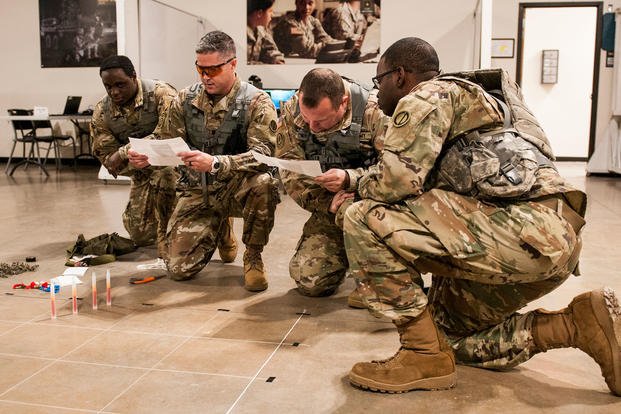The Benefits of Joining the Reserves
Welcome to our comprehensive guide on the benefits of joining the reserves. In this article, we will explore the various advantages and opportunities that come with becoming a reservist. Whether you are considering a career in the military or looking for a way to serve your country while maintaining civilian life, the reserves offer a unique path worth exploring.
Flexible Commitment
One of the key benefits of joining the reserves is the flexibility it offers. Unlike full-time military service, reservists have the opportunity to balance their military duties with civilian obligations. This means you can pursue a civilian career, education, or take care of family responsibilities while still serving your country.
Financial Stability
Joining the reserves can provide financial stability and numerous financial benefits. Reservists receive competitive pay and allowances, and may also qualify for additional benefits such as healthcare coverage, retirement plans, and educational assistance. These benefits can greatly contribute to your overall financial well-being and future security.
Training and Skill Development
When you join the reserves, you gain access to valuable training and skill development opportunities. The military offers a wide range of specialized training programs that can enhance your professional skills and open doors to new career paths. Whether it’s technical skills, leadership development, or specialized certifications, the reserves can help you acquire skills that are highly sought after in both military and civilian sectors.
Networking and Camaraderie
Being part of the reserves allows you to build a strong network of like-minded individuals who share a common purpose. You will have the opportunity to work alongside people from diverse backgrounds and forge lifelong friendships. The sense of camaraderie and teamwork fostered in the reserves can be immensely rewarding and create a support system that extends beyond your military service.
Healthcare Benefits
Reservists are eligible for healthcare benefits, which can be especially valuable for those who do not have access to comprehensive healthcare coverage through their civilian jobs. These benefits can include medical and dental care, as well as mental health support. Knowing that you and your family are covered in terms of healthcare can provide peace of mind.
Education and Career Advancement
Joining the reserves can offer unique opportunities for education and career advancement. Reservists may be eligible for tuition assistance, scholarships, and educational grants. Additionally, the military rience and training can make you a highly desirable candidate in the job market, as it demonstrates discipline, leadership, and a strong work ethic.
Contributing to National Security
By joining the reserves, you play a crucial role in ensuring national security. Reservists are called upon to provide support during times of crisis, natural disasters, and other emergencies. Your service directly contributes to the safety and well-being of your fellow citizens, making a positive impact on your community and the nation as a whole.

Joining the reserves offers a multitude of benefits, including flexible commitment, financial stability, training and skill development, networking opportunities, healthcare benefits, education and career advancement, and the satisfaction of contributing to national security. If you are looking for a way to serve your country while maintaining a civilian life, the reserves can provide a fulfilling and rewarding path. Consider exploring the opportunities available to you and take the first step towards a meaningful military career.
Frequently Asked Questions
1. What are the benefits of joining the reserves?
The benefits of joining the reserves include part-time commitment, financial compensation, educational opportunities, healthcare benefits, and retirement benefits.
2. Can I still have a civilian job while serving in the reserves?
Yes, you can maintain a civilian job while serving in the reserves. Reservists typically serve part-time, allowing them to pursue a civilian career alongside their military duties.
3. Do reservists receive financial compensation?
Yes, reservists receive financial compensation for their service. This includes pay for training, drill weekends, and deployments.
4. What educational opportunities are available for reservists?
Reservists have access to various educational opportunities, such as tuition assistance, scholarships, and the Montgomery GI Bill, which can help fund their college education.
5. Do reservists receive healthcare benefits?
Yes, reservists are eligible for healthcare benefits. They can enroll in TRICARE Reserve Select, a premium-based health insurance program, to ensure they have access to medical care.
6. Are there retirement benefits for reservists?
Yes, reservists can earn retirement benefits. After completing 20 years of qualifying service, they become eligible for a reserve retirement pension, which provides a monthly income upon reaching retirement age.
7. Can reservists be deployed?
Yes, reservists can be deployed both domestically and internationally. They may be called upon to support military operations, humanitarian missions, or other assignments as needed.
8. Are there opportunities for career advancement in the reserves?
Yes, reservists have opportunities for career advancement. They can progress through various ranks and take on leadership roles within their respective branches of the military.
9. What training do reservists receive?
Reservists receive training specific to their military occupation. They undergo initial training upon joining and participate in regular drills and exercises to maintain their skills and readiness.
10. Can reservists transition to active duty?
Yes, reservists have the option to transition to active duty if they choose to pursue a full-time military career. This transition can provide additional benefits and opportunities for professional growth.




